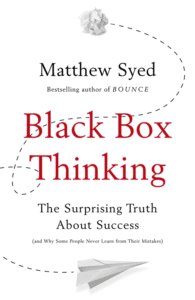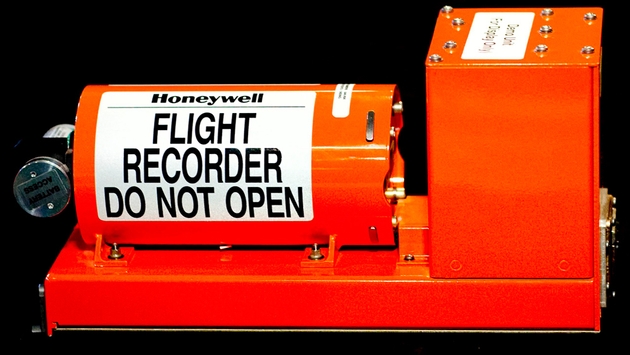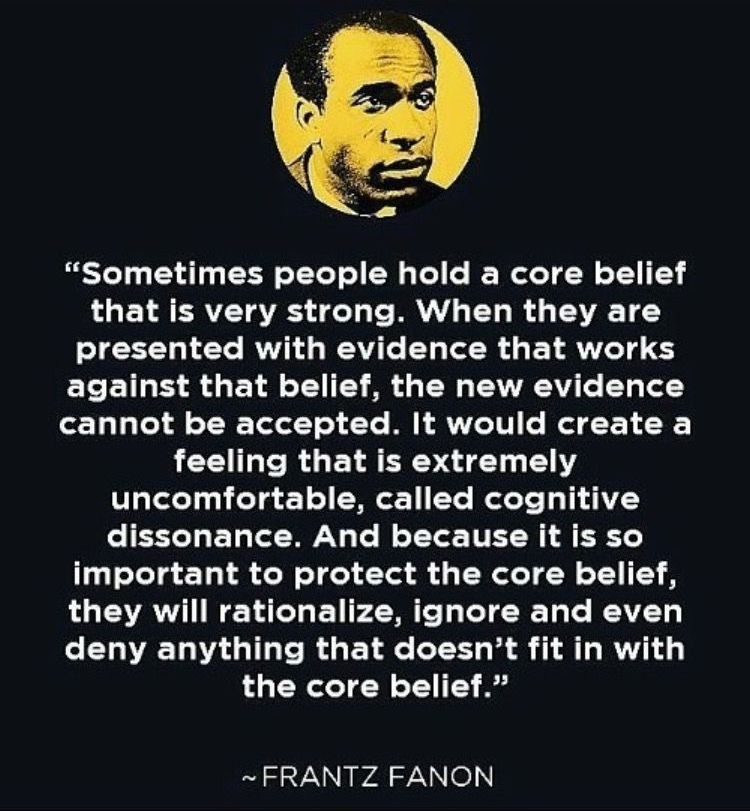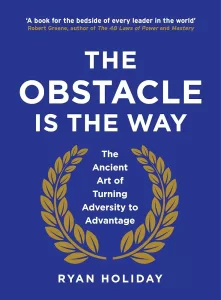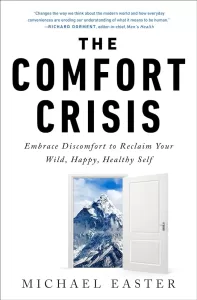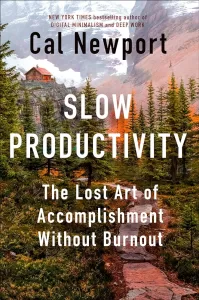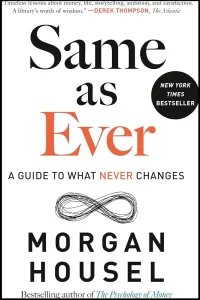Book Review: “Black Box Thinking”
Book: Black Box Thinking by Matthew Syed
Reviewer: Bobby Powers
My Thoughts: 9 of 10
Although his first book Bounce was really good (you should check it out if you haven't yet), Matthew Syed's new book Black Box Thinking reaches a whole new level. I always take notes on the books I read, and my notes for Black Box Thinking are absurdly long because there's so much I want to remember from this book. Syed dynamically contrasts the airline industry and the healthcare industry—two industries that view failure very differently. I've worked in numerous agile, fast-paced companies that emphasize failing fast and learning from mistakes, so this book hit home for me. I think it will for you too...regardless of whether you're coming from the world of software, banking, health care, retail, or anywhere else.
Takeaways from the Book
How the Health Care Industry Deals with Failure*
- “In 2013 a study published in the Journal of Patient Safety put the number of premature deaths associated with preventable harm at more than 400,000 per year…This is the equivalent of two jumbo jets falling out of the sky every twenty-four hours. ‘What these numbers say is that every day, a 747, two of them are crashing. Every two months, 9/11 is occurring,’ (Peter J. Pronovost, MD) said. ‘We would not tolerate that degree of preventable harm in any other forum.’ These figures place preventable medical error in hospitals as the third biggest killer in the United States—behind only heart disease and cancer.”
- “Observing more senior physicians, students learn that their mentors and supervisors believe in, practice and reward the concealment of errors. They learn how to talk about unanticipated outcomes until a ‘mistake’ morphs into a ‘complication.’ Above all, they learn not to tell the patient anything.” -Nancy Berlinger
- “This kind of reasoning represents the essential anatomy of failure-denial. Self-justification, allied to a wider cultural allergy to failure, morphs into an almost insurmountable barrier to progress.”
- “The problem isn’t that patients aren’t finding out about mistakes; it’s that doctors aren’t finding out about them either, and are therefore unable to learn from them.”
- *Caveat: Syed is careful to acknowledge that those in the health care industry are deeply passionate about their craft and the people they serve. He explains that any failures of the industry are due to the incentives/disincentives of the system rather than any malicious intent of individuals.
How the Airline Industry Deals with Failure
- “In aviation, things are radically different: learning from failure is hard-wired into the system.”
- “Mistakes are not stigmatized, but regarded as learning opportunities. The interested parties are given every reason to cooperate, since the evidence compiled by the accident investigation branch is inadmissible in court proceedings.”
- “Every aircraft is equipped with two almost-indestructible black boxes, one of which records instructions sent to the onboard electronic systems, and another that records the conversations and sounds in the cockpit. If there is an accident, the boxes are opened, the data is analyzed, and the reason for the accident excavated. This insures that procedures can be changed so that the same error never happens again.”
- “Through this method aviation has attained an impressive safety record…In 2013, there were 36.4 million commercial flights worldwide carrying more than 3 billion passengers, according to the International Air Transport Association. Only 210 people died. For every one million flights on Western-built jets there were 0.41 accidents—a rate of one accident per 2.4 million flights.”
Success Arises from Failure
- “The explanation for success hinges, in powerful and often counterintuitive ways, on how we react to failure."
- “Progress in most human activities depends, in large part, on our willingness to learn from failure. If we edit out failure, if we reframe our mistakes, we are effectively destroying one of the most precious learning opportunities that exists.”
- “For our purposes, a closed loop is where failure doesn’t lead to progress because information on errors and weaknesses is misinterpreted or ignored; an open loop does lead to progress because the feedback is rationally acted upon.”
- "By looking only at the theories that have survived, we don’t notice the failures that made them possible. This blind spot is not limited to science; it is a basic property of our world and it accounts, to a large extent, for our skewed attitude to failure. Success is always the tip of an iceberg…Beneath the surface of success—outside our view, often outside our awareness—is a mountain of necessary failure.”
Cognitive Dissonance
- “‘Cognitive dissonance’ is the term Festinger coined to describe the inner tension we feel when, among other things, our beliefs are challenged by evidence.”
- “When we are confronted with evidence that challenges our deeply held beliefs we are more likely to reframe the evidence than we are to alter our beliefs. We simply invent new reasons, new justifications, new explanations. Sometimes we ignore the evidence altogether.”
- “It is precisely in order to live with themselves, and the fact that they have harmed patients, that doctors and nurses reframe their errors in the first place. This protects their sense of professional self-worth and morally justifies the practice of nondisclosure.”
- “Intelligence and seniority when allied to cognitive dissonance and ego is one of the most formidable barriers to progress in the world today."
The Narrative Fallacy
- “We are so eager to impose patterns upon what we see, so hardwired to provide explanations that we are capable of ‘explaining’ opposite outcomes with the same cause without noticing the inconsistency.”
- “Narrative fallacies arise inevitably from our continuous attempt to make sense of the world. The explanatory stories that people find compelling are simple; are concrete rather than abstract; assign a larger role to talent, stupidity, and intentions than to luck; and focus on a few striking events that happened rather than on the countless events that failed to happen.” -Daniel Kahneman
- "When we are misled into regarding the world as simpler than it really is, we not only resist testing our top-down strategies and assumptions, we also become more defensive when they are challenged by our peers or by the data. After all, if the world is simple, you would have to be pretty stupid not to understand it.”
Blame
- “Blame is, in many respects, a subversion of the narrative fallacy: an oversimplification driven by biases in the human brain.”
- “In short, we have to engage with the complexity of the world if we are to learn from it; we have to resist the hardwired tendency to blame instantly, and look deeper into the factors surrounding error if we are going to figure out what really happened and thus create a culture based upon openness and honesty rather than defensiveness and back-covering.”
- “What should be crystal clear is that a desire to apportion blame, before taking the time to understand what really happened, is senseless.”
- “There is almost no human action or decision that cannot be made to look flawed and less sensible in the misleading light of hindsight.” -Anthony Hidden
Resilience/Grit
- “The most important quality I look for in people coming to Dyson is the willingness to try, fail and learn.” -James Dyson
- “The mistaken idea that success is an instant phenomenon destroys resilience.”
- “Self-esteem, in short, is a vastly overvalued psychological trait. It can cause us to jeopardize learning if we think it might risk us looking anything less than perfect. What we really need is resilience: the capacity to face up to failure, and to learn from it. Ultimately, that is what growth is all about.”
- “If we drop out when we encounter problems, progress is prevented, no matter how talented we are. If we interpret difficulties as indictments of who we are, rather than as pathways to progress, we will run a mile from failure. Grit, then, is strongly related to the Growth Mindset; it is about the way we conceptualize success and failure.”
Other Thoughts
- "If we wish to fulfill our potential as individuals and organizations, we must redefine failure.”
- "Failure is simply the opportunity to begin again, this time more intelligently.” -Henry Ford
- "No one can possibly give us more service than by showing us what is wrong with what we think or do; and the bigger the fault, the bigger the improvement made possible by its revelation. The man who welcomes and acts on criticism will prize it almost above friendship: the man who fights it out of concern to maintain his position is clinging to non growth.” -Bryan Magee
- “Innovation cannot happen without failure. Indeed, the aversion to failure is the single largest obstacle to creative change, not just in business but beyond."
- “My strategy has always been: be wrong as fast as we can…which basically means, we’re gonna screw up, let’s just admit that. Let’s not be afraid of that. But let’s do it as fast as we can so we can get to the answer…I won’t get it right the first time, but I will get it wrong really soon, really quickly.” -Andrew Stanton
Think you’d like this book?
If you like this book, you may like...
- The Lean Startup by Eric Ries
- Thinking, Fast and Slow by Daniel Kahneman
Other notable books by the author:
- Bounce: Mozart, Federer, Picasso, Beckham, and the Science of Success
Want to become a stronger leader?
Sign up to get my exclusive
10-page guide for leaders and learners.
